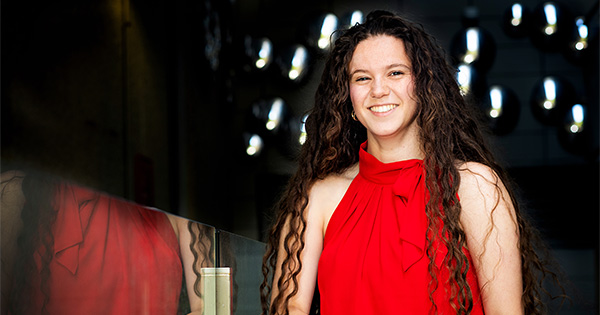These graduates are prepared to make use of their expertise to alter the world
For the 4,113 graduate college students in Boston College’s Class of 2022, this isn’t their first saunter throughout a stage to obtain a diploma. This weekend’s ceremonies mark the fruits of their numerous hours of learning, researching, interning, instructing, studying (after which studying some extra), and dealing tirelessly in pursuit of that time-honored image of upper training: a sophisticated diploma.
With Graduation 2022 upon us, BU As we speak is showcasing three of the distinctive grasp’s and JD college students graduating this yr. Whereas they could have vastly totally different backgrounds, all three have one factor in widespread: they’re prepared to make use of their talent units to make a distinction of their communities.
Edgar Miranda
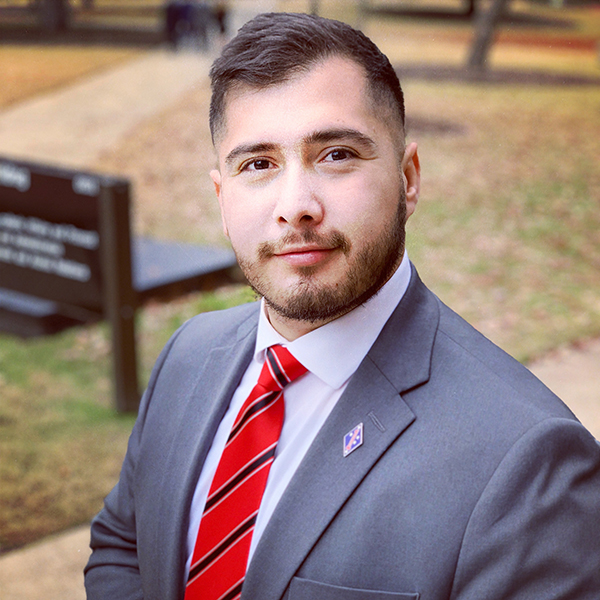
In his time at BU, first-generation school graduate Edgar Miranda (LAW’22) has helped shoppers of the College of Regulation’s Immigrants’ Rights Clinic get asylum, stepped up because the president of the BU LAW Scholar Veterans Affiliation, and secured covetable clerkships and internships with regulation workplaces across the nation.
However again when he was 17, none of that appeared even remotely attainable for him. With self-described “horrible” ACT and SAT scores and little sense of what he wished to do in life, school by no means felt like an possibility for Miranda.
As a substitute, he joined the Marines.
“I simply went for it,” Miranda says. “It’s like a free fall; when you make the leap, there’s no going again.”
It labored. Within the Marine Corps, Miranda in the end discovered the self-discipline and function he felt he’d been lacking. By 19, he was already a corporal. By 23, he was in Afghanistan (as a noncombat officer) and in control of a billion-dollar logistical contract for his base’s eating amenities, laundry providers, water remedy, safety, and extra. Finally, his service in Afghanistan earned him a Navy-Marine Corps Commendation Medal.
He left the Marine Corps as a sergeant. In his years of service, he’d been stationed in Afghanistan, Texas, Korea, Japan, and California, and had held a wide range of roles as an officer, teacher, and mentor. Then got here his latest problem: civilian life.
Miranda enrolled in school at 26. “It was nearly like tradition shock, going from being a Marine to being a civilian,” he says. The scholars at his neighborhood school—after which on the College of Georgia, the place he transferred after neighborhood school—“felt like kids” to him, particularly as he was attempting to navigate Veterans Affairs to get the training and healthcare advantages he wanted to complete school. Fortunately, an workplace assistantship at UGA College of Regulation’s newly established veterans authorized clinic supplied him each assist and course.
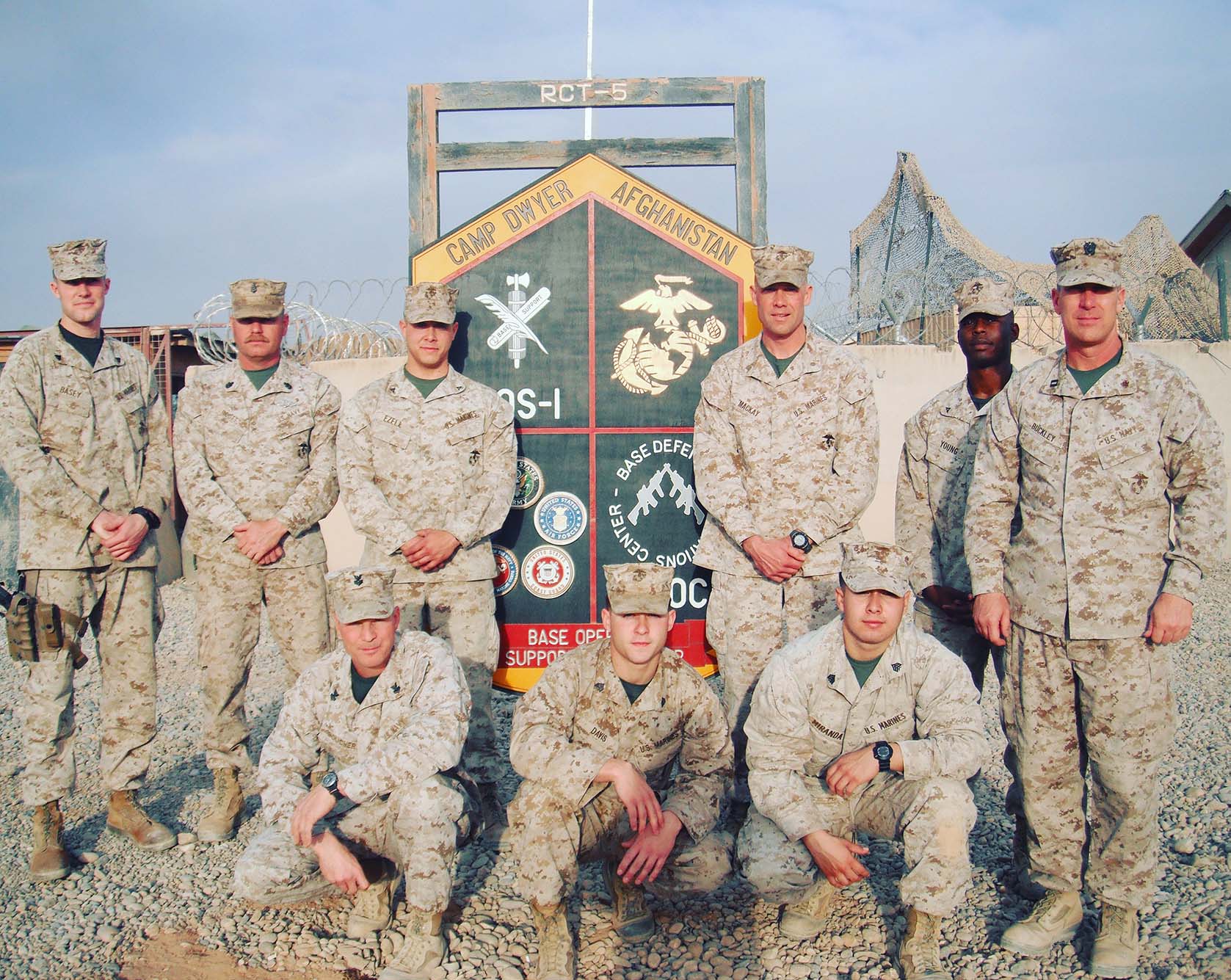
Seeing the UGA regulation college students present tangible assist to veterans like him was eye-opening. “That was a kind of moments the place it’s like, why not me?” Miranda relates. For one, he’d already been providing fellow service members recommendation on navigating VA necessities after they left the Corps. Primarily, although, he was influenced by the prospect to assist folks by getting a regulation diploma.
And so, after graduating with a bachelor’s diploma in enterprise administration from UGA, Miranda enrolled at BU as a first-year regulation scholar. For the first-generation Mexican-American and school scholar, regulation faculty was intimidating, but in addition liberating. He battled impostor syndrome for a lot of his first yr, he says, till he realized that everybody in his cohort was in the identical boat.
“Regulation faculty is an enormous equalizer; irrespective of your background, you’re ranging from scratch,” he says. “You’re navigating the identical curriculum and attempting to get to class and perceive what’s happening. That’s what you want to give attention to, moderately than ‘I’m not sensible sufficient’ or ‘This individual’s dad and mom are additionally legal professionals and mine aren’t.’ Everybody goes by means of the identical issues, and when you really feel insecure or such as you don’t belong, that’s not the case. You will have a proper to be there simply as a lot as everybody else.”
Miranda spent his remaining yr of regulation faculty as a visiting regulation scholar on the College of California, Los Angeles, close to his dad and mom and his hometown. When he graduates, he’ll be going to work for a regulation agency in Newport Seaside as a public finance affiliate. “I’ll assist public entities like cities and college districts concern bonds and incur money owed to fund infrastructure tasks,” he explains.
As a newly minted lawyer, he appears like he’s discovered his function.
“Getting out of the Marines, I went from being Sergeant Miranda to a no one,” Miranda says. “I lastly really feel like I’m not a no one anymore. Now, I can do issues to assist folks. I really feel like I’m able to proceed giving again.”
Peter Kargbo
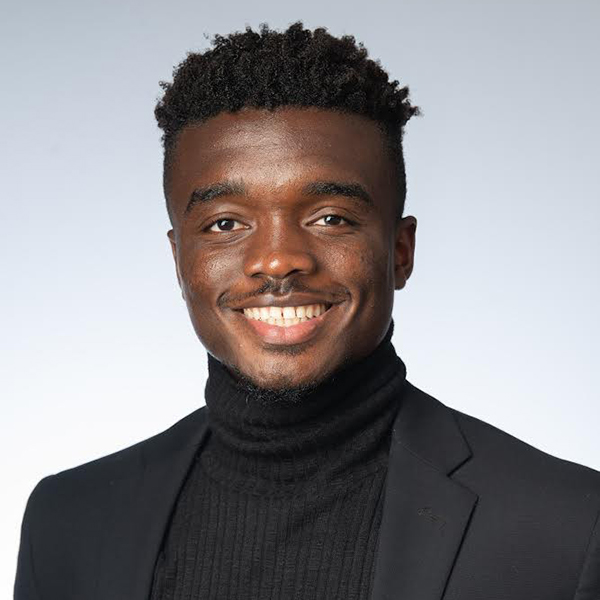
If there’s been one fixed in Peter Kargbo’s life, it’s soccer.
It’s what bought the Sierra Leone native to the USA within the first place, again when he was scouted by soccer academy coaches as a young person. And after spending years touring the nation along with his academy’s elite workforce, it’s additionally what in the end led him to BU, the place he earned a number of honors as a midfielder for the Terriers males’s soccer workforce.
However, it’s not all there’s anymore.
“Soccer has been an enormous a part of my life,” says Kargbo (CGS’19, COM’21, SHA’22), who’s graduating from the College of Hospitality Administration with a grasp’s in hospitality administration after incomes a bachelor’s in promoting from the School of Communication. “The dream was at all times to play skilled soccer after school. However I’ve realized over the previous two, three years that there’s far more that means to life.”
Don’t get him flawed: he’s nonetheless grateful for the alternatives the game allowed him, he says, and that he spent years enjoying the sport he loves. But when there’s something he’s discovered from his 5 years at BU—and his 9 years within the States general—it’s that life has a approach of putting you the place you want to be.
For Kargbo, that’s been Boston. It’s the place he discovered mates (together with a girlfriend), mentors, regular employment—he’s achieved nearly each scholar job on campus, he estimates—and an training he and his household by no means might have dreamed of in Sierra Leone. The truth that he has a highschool diploma, a bachelor’s, and now a grasp’s remains to be mind-blowing to him, he says.
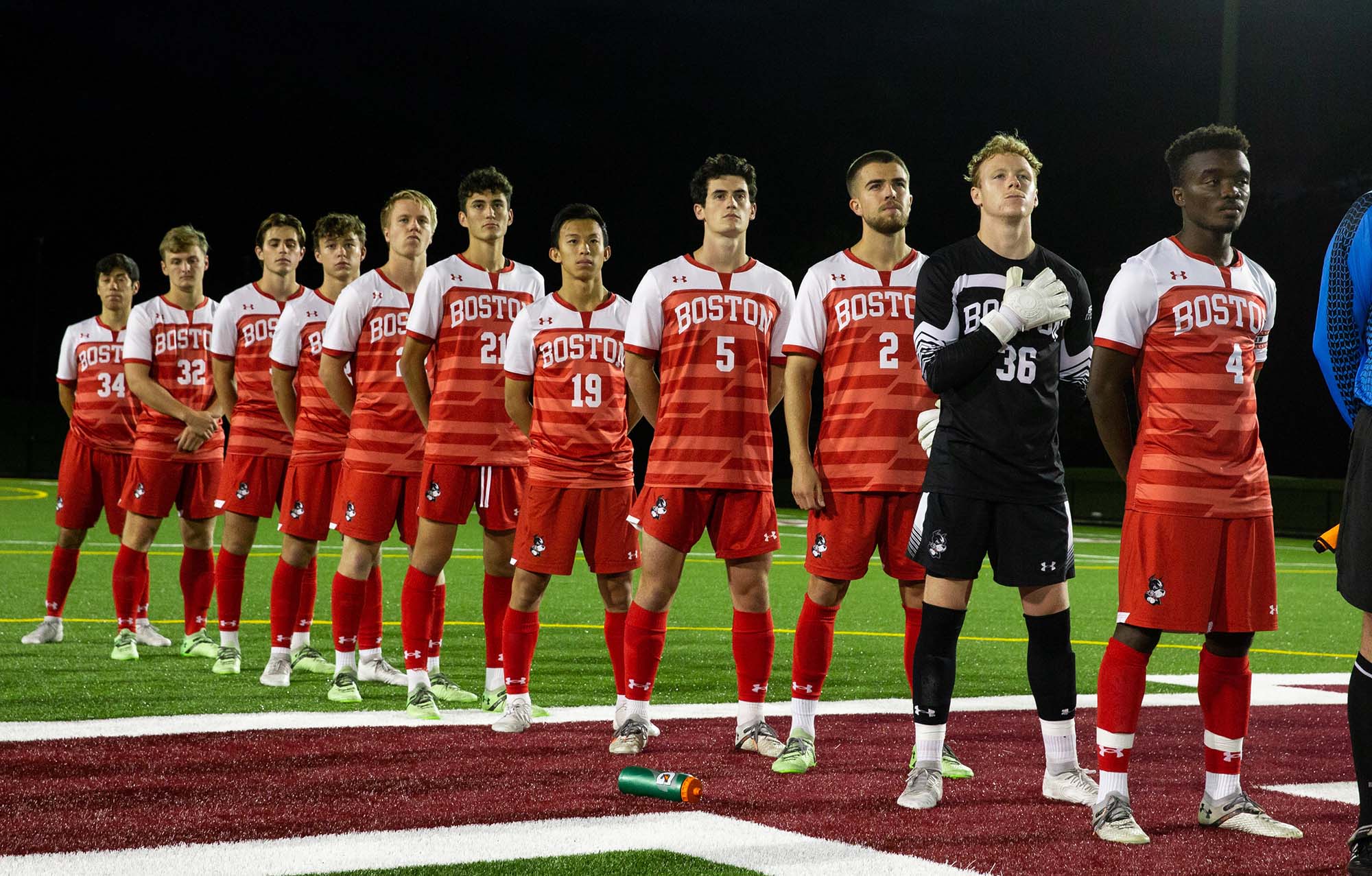
“My dad and mom had been at all times large on training. I video-called my household again dwelling on WhatsApp after I walked for commencement final yr,” Kargbo says. “Once I noticed how completely happy they had been—like, I’ve by no means seen them like that. Everybody was on the decision, all my brothers and sisters, and everybody was simply screaming. It was one in all my favourite moments. I don’t want every other motivation than my household.”
That causes a whole lot of strain generally, he acknowledges. However, he says, “I’m lucky to be in that place, as a result of any of my siblings would like to be in my sneakers.”
Kargbo spent the previous yr taking courses and interning with Restaurant Associates at Harvard Enterprise College, the place he’s accepted a full-time job beginning in June. He additionally participated in SHA’s POC PhD Pathway Program in Hospitality and Tourism convention in April, nominated by Arun Upneja, dean of SHA. Regardless that a doctorate isn’t in his rapid future, he says, the convention and his time at SHA actually opened his eyes to what’s attainable.
To this point, his plan is to construct his profession right here in occasions and catering after which begin fascinated about what he can do again dwelling. Hospitality is all so interconnected, he says—resorts, catering, tourism: all of it goes hand in hand. He’d love to assist construct a full-service lodge in Sierra Leone someday.
“My purpose is to showcase the great thing about Sierra Leone past being a rustic rampaged by a civil struggle, Ebola, and a pandemic, and to let folks—particularly within the Western world—see it as a gorgeous, secure place with the nicest folks on the earth,” Kargbo says.
He’ll additionally maintain giving again in methods he can. He sends cash to his household, and final fall, he raised near $2,000 for a charity that builds colleges and supplies scholarships to kids in Sierra Leone. He’s despatched soccer balls and cleats to one in all his former coaches who runs a charity again dwelling, too.
So sure, soccer gave him this life, however there’s a lot extra in it now.
“My household, and life, and simply what I wish to do again dwelling for my nation and hometown is approach greater than that,” Kargbo says.
Michelle Eastman
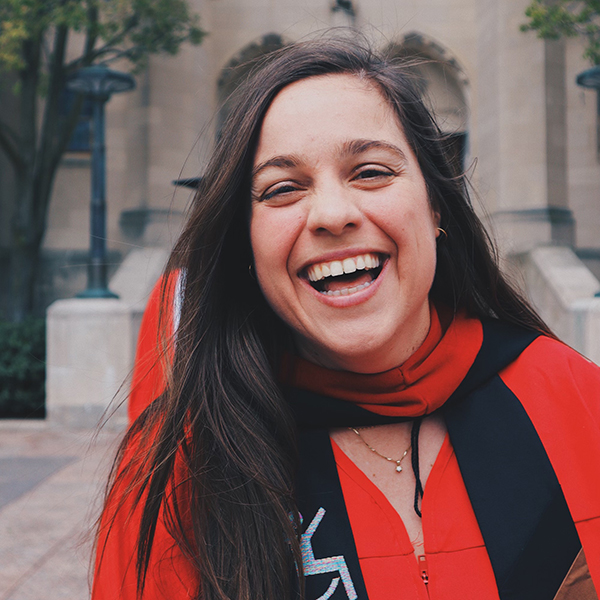
Rising up within the Evangelical Christian religion and having cerebral palsy, there have been two fundamental narratives Michelle Eastman (STH’22) heard about having a incapacity. First, that it was the results of sin and wanted prayer to be healed. And on the opposite finish, that it was one thing to be glorified.
“Within the Christian custom, folks will say issues like, ‘If God is permitting you to undergo, which means it’s going that can assist you be robust,’” Eastman relates. “Folks with disabilities will typically be advised their struggling is nice for them.”
It wasn’t till she bought to BU and started her graduate research on the College of Theology that she was capable of begin disrupting these narratives.
In her courses and extracurriculars, she “began to grasp that there have been different interpretations of incapacity in theology,” says Eastman, who’s graduating with a grasp’s in divinity. “STH actually works to consider theology in a extra inclusive approach, and that was the primary time in my life that I heard somebody problem the notion of sure therapeutic passages within the Bible. BU actually made area for me to reimagine incapacity not as sin, however as a distinction to be celebrated.”
That narrative shift impressed her grasp’s work. In her time at STH, Eastman dug deep into incapacity concept and incapacity justice. She additionally engaged in on-campus advocacy: she was closely concerned in talks with BU directors about making the campus extra accessible for college kids and employees with disabilities. Plus, she’s in control of the STH Class of 2022 class reward, a fund to make the varsity extra handicap accessible.
Most notably, although, Eastman, together with six different theology grad college students, from BU, Harvard, and Boston School, organized the first-ever incapacity convention at STH this previous March. The convention, titled Accessing the Divine: Incapacity, Embodiment, and Claiming Joyous Futures, drew roughly 220 attendees (50 of them in individual) from all over the world. It featured six presenters—all disabled—three workshops, and keynote speaker Sharon Betcher, probably the most preeminent students in “crip theology,” as Eastman calls it. (“It’s reclaiming ‘crippled’ as a constructive factor,” she explains.)
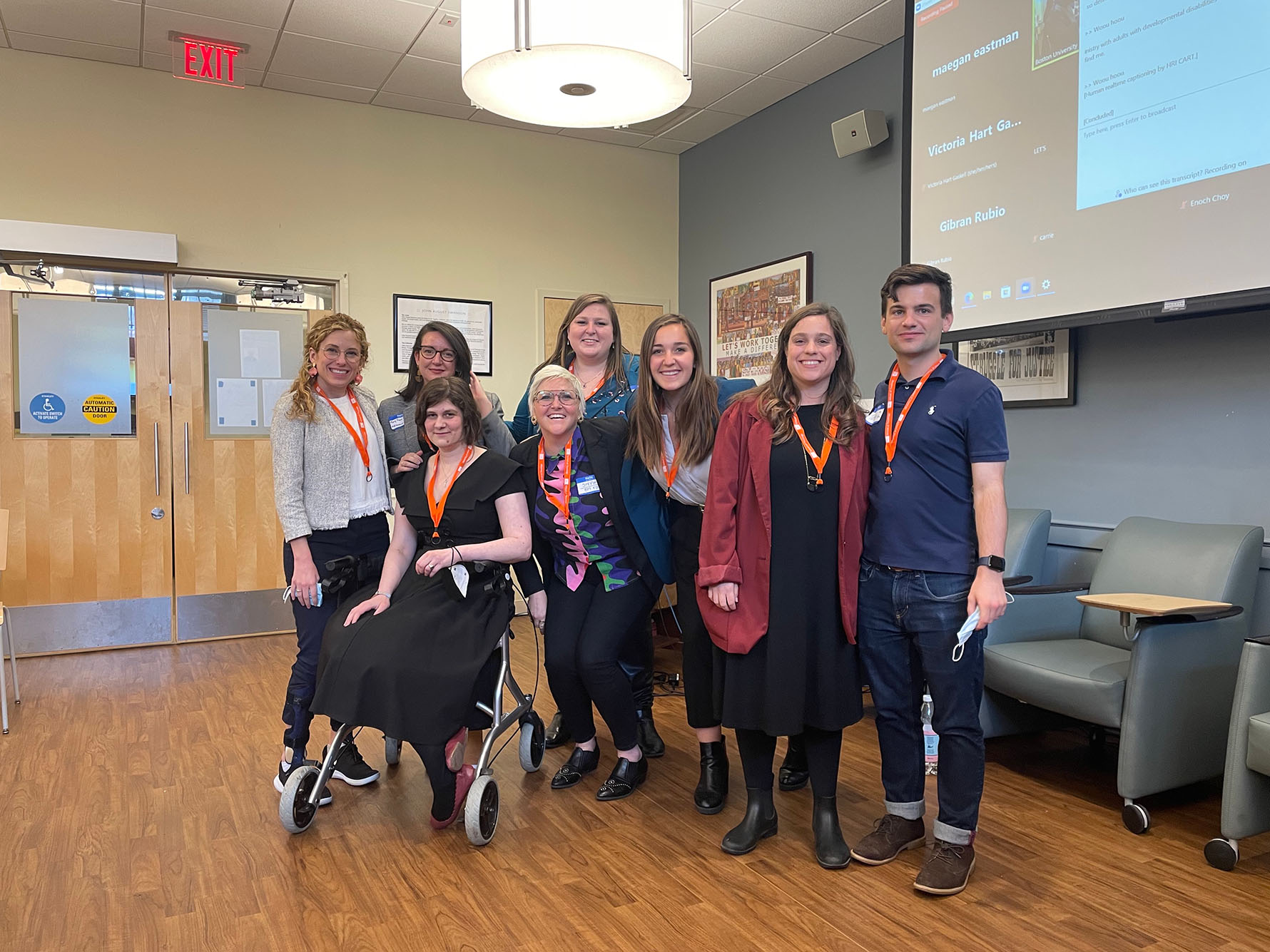
The whole day was “tremendous highly effective,” Eastman says. “The conversations that got here out of it had been wonderful.
“The entire function of the day was to say joyful futures about incapacity, as a result of within the Christian custom—and society at giant—incapacity is seen as a tragedy. But it surely’s the one minority that anybody might fall into at any time,” she says. “By coming along with a bunch of disabled folks, it was like saying, ‘No, our embodiment could be joyful, and our futures matter.’ We simply made room for the celebration and the understanding that there are different methods to consider incapacity, whether or not you’re Christian or not.”
The convention was the right fruits of her work at BU, Eastman says. It’s additionally a harbinger of the work she needs to do going ahead. After taking a while off, she plans to pursue a PhD in incapacity theology. She additionally needs to proceed being an advocate for the disabled neighborhood, in no matter type that takes. (And in her spare time, she runs an Instagram web page devoted to celebrating disabilities in non secular areas.)
She is aware of that that is her calling.
“The extra I research incapacity and reimagining it in a constructive approach in Christian theology, it’s like I’ve encountered God in a completely totally different approach,” Eastman says. “My relationship with God and why I imagine in God could be very a lot tied up with my vocational ardour to be an advocate for the incapacity neighborhood. I actually imagine that God is on the aspect of the oppressed.
“I’ve been liberated to reclaim narratives [about disability], and I’m motivated to inform different folks about them so that individuals with disabilities is not going to solely really feel snug in church, but in addition so that they received’t be like, stopped within the grocery retailer to be prayed for,” she continues. “It’s my ardour to alter this type of narrative.”
Discover extra details about Graduation right here
